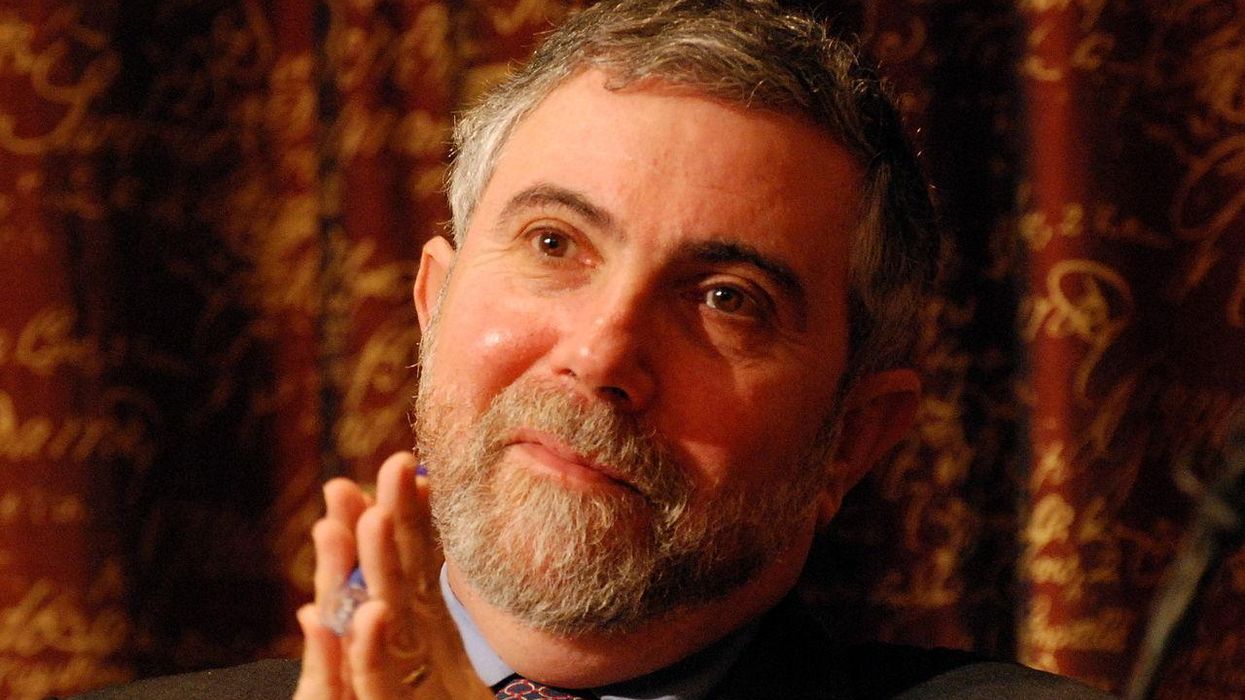Economist Paul Krugman: Why the latest inflation news is 'seriously encouraging'

Economist Paul Krugman in Stockholm, Sweden in 2008 (Creative Commons)
December 27, 2022 | 09:43AM ETEconomy
The U.S. has had its lowest unemployment rates in over half a century. On the other hand, the U.S. has also suffered its worst inflation since the early 1980s.
In the 2022 midterms, countless Republican candidates claimed that President Joe Biden was to blame for the inflation the U.S. is suffering — and ignored the fact that inflation is a global problem, not a problem that is unique to the U.S. Many other developed countries, in fact, have worse inflation than what the U.S. has been experiencing. According to the Trading Economics website, the U.S. had 7.1 percent inflation in November compared to 7.3 percent in Australia, 9.9 percent in the Netherlands, 10 percent in Germany, 10.7 percent in the U.K. and 11 percent in Italy.
As 2022 draws to a close, a question on the minds of many Americans is: How much will inflation slow down in 2023? Liberal economist and New York Times opinion writer Paul Krugman addresses that subject in his December 26 column, expressing some cautious optimism about inflation but warning that there are “still reasons to worry.”
“Recent reports on the inflation measures the Federal Reserve traditionally uses to guide its interest rate policy have been really, really good,” Krugman explains. “So, is this going to be the winter of our diminishing discontent? After the nasty shocks of the past two years, nobody wants to get too excited by positive news. Having greatly underestimated past inflation risks myself, I’m working hard on curbing my enthusiasm. And the Fed, which is worried about its credibility, is even more inclined to look for clouds in the silver lining.… It’s much too soon to declare all clear on the inflation front, but there has been a big role reversal in the inflation debate.”
The columnist adds, “Last year, optimists like me were trying to explain away the bad news. Now, pessimists are trying to explain away the good news.”
Krugman notes that “so far,” the “improvement in inflation numbers” hasn’t “followed the pessimists’ script.”
“What explains falling inflation?” Krugman writes. “It now looks as if much, although not all, of the big inflation surge reflected one-time events associated with the pandemic and its aftermath — which was what Team Transitory, including me, claimed all along, except that transitory effects were both bigger and longer lasting than any of us imagined.”
The economist continues, “First came those supply chain issues. As consumers, fearing risks of infection, avoided in-person services — such as dining out — and purchased physical goods instead, the world faced a sudden shortage of shipping containers, port capacity and more. Prices of many goods soared as the logistics of globalization proved less robust and flexible than we realized. Then came a surge in demand for housing, probably caused largely by the pandemic-driven rise in remote work. The result was a spike in rental rates.”
The economist notes that new data from the Cleveland Federal Reserve “confirms” that “rapid rent increases for new tenants have stopped, and rents may well be falling.”
Krugman writes, “My concern — and, I believe, the Fed’s — comes down to the fact that the job market still looks very hot, with wages rising too fast to be consistent with acceptably low inflation…. Oh, and with visible inflation slowing, the risks of a wage-price spiral, which I never thought were very large, are receding even further. So, we’ve had some seriously encouraging inflation news. There are still reasons to worry, and the news isn’t solid enough to justify breaking out the champagne. But given the season, I am going to indulge at least in a glass or two of eggnog.”
READ MORE: Watch: Chart-armed Katie Porter proves that corporate greed is the primary cause of inflation